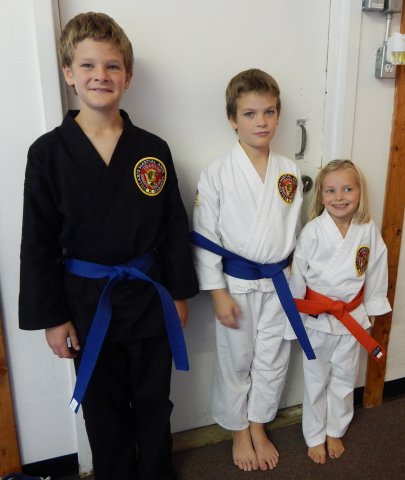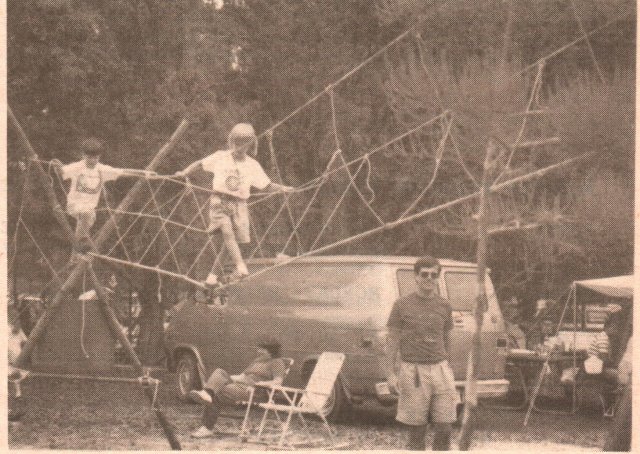The Battle of Kings Mountain was, like that of nearby Cowpens, decisive in turning the tide of the American Revolution in the South. Not that I was ever taught that in any history class in school, where local prejudice made the Battle of Saratoga the only "turning point of the American Revolution." But better half a century late than never: I know it now, and we visited both Kings Mountain and Cowpens on one of South Carolina's most beautiful ever November days.
Another point of major importance that I never knew: in the South, the Revolution was actually a civil war. Having been brought up in the Northeast, I never thought of Tories as being all that important: the Revolution was a battle between patriotic Americans and their nasty British overlords. But in this part of the land the fight was brother against brother, or at least neighbor against neighbor, with loyalties somewhat fluid, and more about personal freedom than politics and breakfast beverages. The British did their best to encourage the Loyalist faction (Tories) against the Patriots (Whigs), much as we keep trying to do in other countries today. They'd hoped to get the Americans to do most of the dirty work for them, remaining themselves in more of a leadership and advisory position. (Not much has changed in 234 years.) At Kings Mountain, the officer in charge of recruiting and leading the Loyalists was Patrick Ferguson. (More)
I was making Thanksgiving candy in the kitchen. Porter was flipping channels in the family room. He settled on a documentary talking about someone named Birdseye who for reasons I didn't catch took his family to live in the frozen wilderness of Labrador. "I wonder if he's the guy behind Birdseye frozen food," he mused.
I am the family looker-upper. I didn't ask for the job, but my family quickly learned that asking Mom was better than using the dictionary or the encyclopedia, because I couldn't rest till I knew the answer. So if they lack dictionary skills, it's my fault. I also drive people nuts: we'll be in the middle of playing a game and someone will casually comment, "I wonder how high the Aswan Dam is," and you guessed it, much to their consternation I leave the game and look up the answer. (The Internet has only made my compulsion easier to indulge in.) It turns out they aren't really curious enough to want to interrupt the game. To which I reply, if you don't want to know, why ask!
So, Porter will flip through channels, and when I ask what he's watching, he'll reply, "I have no idea." At that point I have to grab my phone and check the TV listings, because even though I have no interest in the show, I can't stand not knowing the answer. In this case, I determined that the show was How We Got to Now: Cold, and Porter's hunch was good: the Labrador traveller was indeed Clarence Birdseye, who (eventually) brought us the world of frozen food.
The answer found, I went back to my fudge—only to be drawn away again by a subsequent part of the show: the invention of air conditioning. This I actually sat down and watched, because Porter is not the only one with good hunches: I doubted they would say much about Willis Carrier without interviewing the author of Weathermakers to the World. Sure enough, I hadn't watched for long before I was able to turn to Porter and remark, "You know Eric who sometimes comments on my blog? That's him." (Ungrammatical, I know.)
Anyway, that was fun.
Permalink | Read 2126 times | Comments (3)
Category Everyday Life: [first] [previous] [next] [newest]
You may know the story, but still I dare you to watch this with a dry eye. It's well done, and worth watching the extras at the end, too. (H/T Diana)
Permalink | Read 2055 times | Comments (2)
Category Random Musings: [first] [previous] [next] [newest]
I've written about Porter's Uncle Harry here before, but this article from the Cypress Cemetery website just came to my attention, so it seems appropriate to post it for family members this Veterans Day.
One veteran in particular was noted enough so as to be commemorated with a park and a National Honor Roll Memorial Tree, the large oak located in the northern part of the Annex. His name was Harry Gilbert Faulk and of the 28 veterans in Cypress who fought in World War I, he was the only Saybrook resident actually killed in action - in France on July 25, 1918 at 20 years of age. Company C of the 101st Machine Gun Battalion, to which Harry was attached, was heavily shelled while sleeping on the edge of some woods north of Chateau Thierry on the morning of the 25th which resulted in significant casualties. Harry, who was mortally wounded, was one of the casualties.
It's a good article, though it implies that the store was owned by Harry's parents, and Porter's sure it belonged to Harry's brother, Fred. It was always referred to as "Uncle Fred's store." Any family members remember differently?
Harry was the youngest of six children of Frederick Olaf and Hilma Justina Faulk, who were both born in Sweden. The Faulks were well known in Old Saybrook and on Saybrook Point in part because they owned a small store at the corner of Bridge Street and College Street that also included a post office (photo at left). The location is now occupied by one of the condominium buildings of the Saybrook Point Hotel complex. One can imagine that young Harry spent a lot of time at the family store.
Happy Veterans Day to all, and thanks to all who who serve today or have served in the past.
Congratulations on the new belts!
Permalink | Read 2073 times | Comments (0)
Category Everyday Life: [first] [previous] [next] [newest]
Permalink | Read 2238 times | Comments (1)
Category Everyday Life: [first] [previous] [next] [newest]




